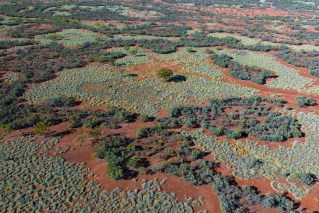Shark hooks pulled from Whitsundays after two attacks


Drumlines were rolled out after shark attacks on Justine Barwick, 46, and Hannah Papps, 12. Photo: AAP
Baited hooks to catch and kill sharks have been pulled from Cid Harbour in Queensland’s Whitsundays region after two life-threatening attacks in 24 hours.
Queensland Fisheries officers killed a total of six sharks since the drum lines were rolled out last Friday.
It comes after Tasmanian woman Justine Barwick, 46, was reportedly released from the intensive care unit on Wednesday.
Melbourne girl Hannah Papps, 12, is in a stable condition.
Fisheries Minister Mark Furner said the shark control equipment, removed on Thursday, helped highlight the danger of sharks in the area.
It came at a cost of five tiger sharks and one small black tip, ranging between 1.2 and 2.7 metres long.
“This indicates the high level of shark activity in the area and suggests more than one shark was involved in last week’s incidents,” Mr Furner said.
“By removing these large sharks we have made the area safer and the publicity around our actions has certainly made everyone more conscious of their own wellbeing in those waters.”
Deputy Opposition Leader Tim Mander drove home that shark attacks had the ability to hurt tourism in North Queensland.
The industry is still recovering from last year’s Cyclone Debbie.
The drum lines were removed just as families flock to the area for school holidays, which last for another week and a half.
The Queensland Boating and Fisheries Patrol (QBFP) will remain at Cid Harbour to maintain awareness about the safety risk.
The harbour is not covered by the state government’s shark control program, which operates at 85 of Queensland’s popular beaches.

Justine Barwick is recovering in a Brisbane hospital. Photo: AAP
Mr Furner urged boaties and tourists to avoid swimming at Cid Harbour.
Conservationists have criticised the use of baited hooks, first introduced to Queensland waters in 1962, saying they do not prevent attacks and give swimmers a false sense of security.
“They may even make the situation worse,” Sea Shepherd Australia’s Jonathan Clark said in a statement on Sunday.
He said personal shark deterrent devices, aerial spotters, drone surveys, public education and alert systems played a bigger role in preventing attacks.
Humane Society International marine campaigner Lawrence Chlebeck noted more sophisticated technology was now available.
“We acknowledge the need for the use of technology and reducing these sorts of incidences … but drum lines have been in the water since 1962. That’s 60 years ago now.
“The technology is there and we’ve moved on.”
Whitsunday diver of 40 years Tony Fontes, the spokesperson for Reef Action Whitsunday, this week told The New Daily there had been very few shark attacks in his time diving local reefs.
“I don’t think locals have ever seen the need for drum lines or any sort of shark deterrent,” Mr Fontes said.
“It’s not that shark attacks don’t happen. It’s just very rare. The last attack was in 2010 and before that there was one in 1997, and before that – I don’t even know.”
The government defended the use of drum lines.
“Can you imagine the public outcry if anything else happened up there in that particular region during school holidays if the Department of Fisheries took no action?” Premier Annastacia Palaszczuk said earlier this week.
In a statement earlier this week, Mrs Barwick’s husband Craig said he understood the government’s response, “and in some ways I appreciate it”.
“However we have to understand that while there have been two attacks in rapid succession, shark attacks are rare and sharks play an important role in the ecosystem of the Great Barrier Reef.”
-with AAP








